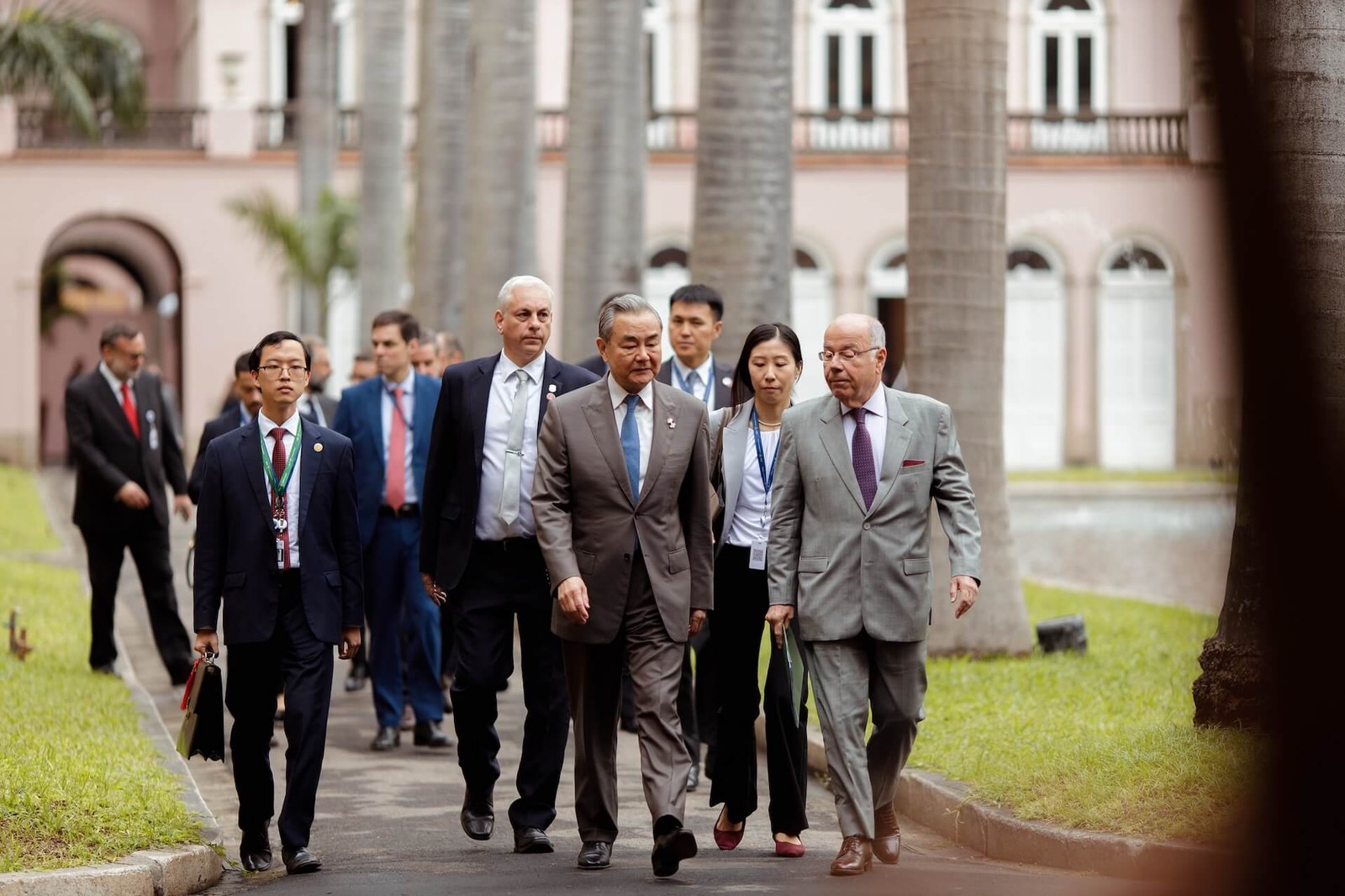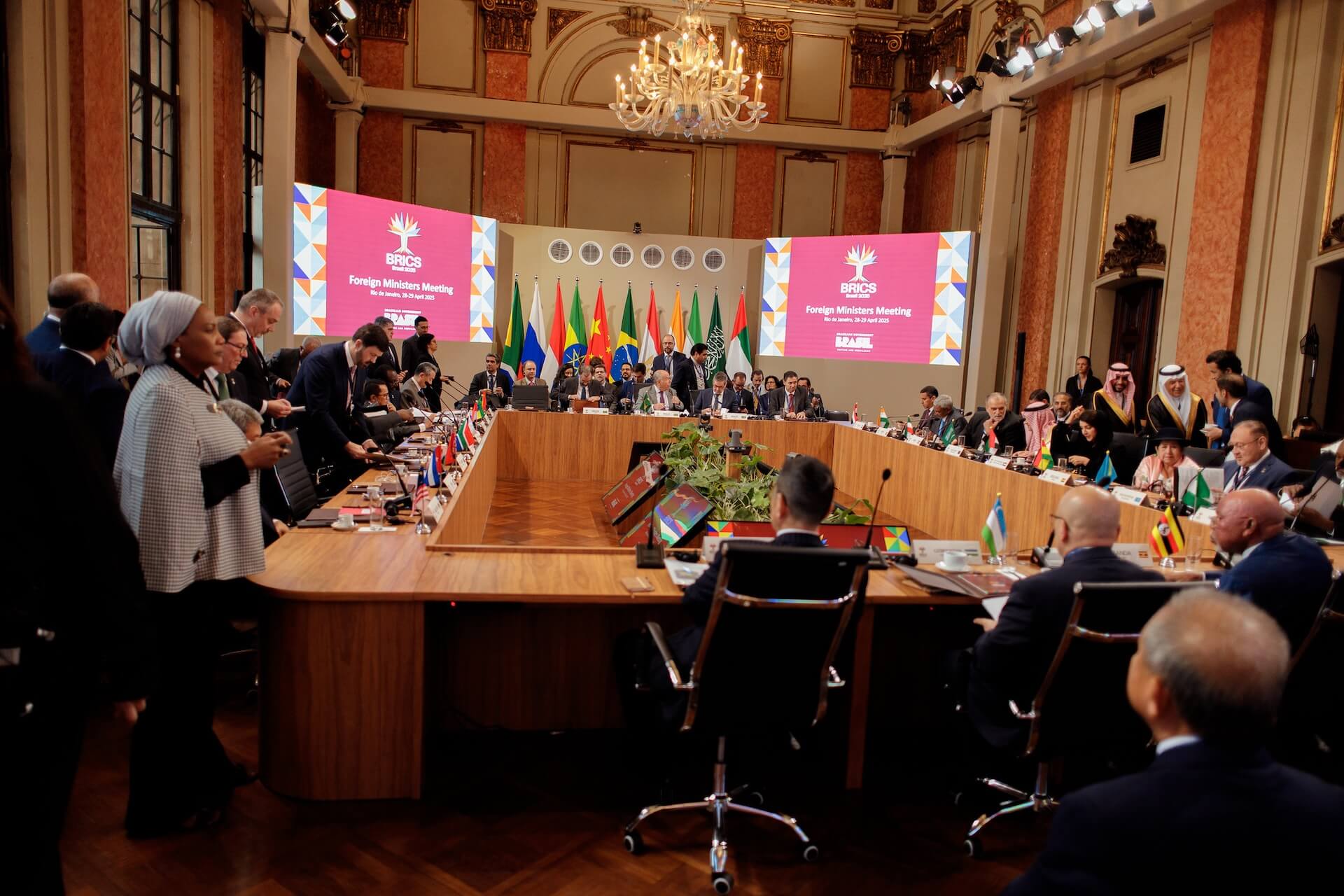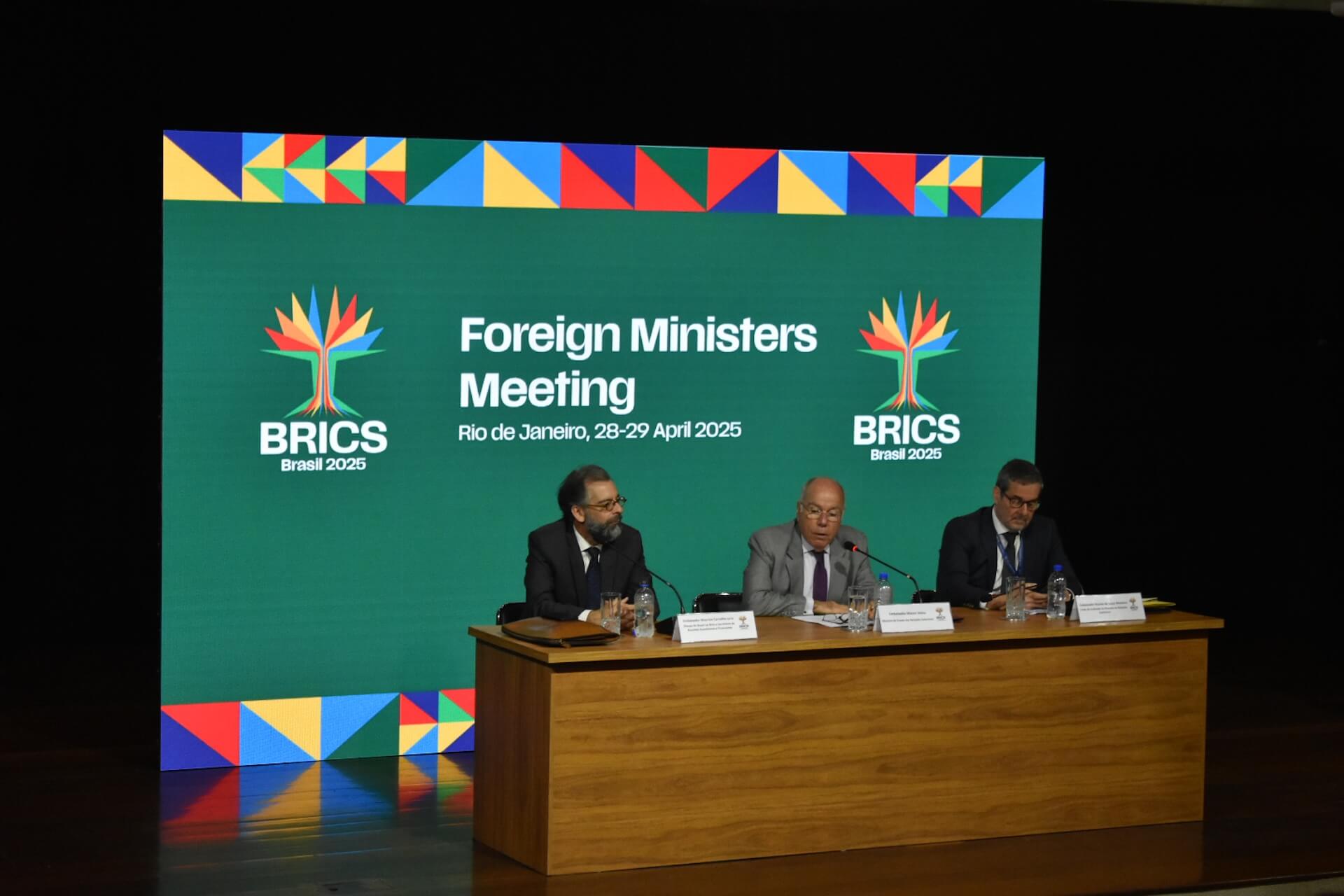BRICS Foreign Ministers reiterate need for changes in global governance
With 11 member countries and 9 guests, the first expanded BRICS meeting addressed political reform and renewed the call for peace. According to the Brazilian minister, BRICS is not a confrontational bloc, but a platform for coalition-building.

During their first meeting since the group’s expansion, the Foreign Ministers of the BRICS countries emphasized that the bloc of emerging nations should be multipolar rather than ideological. This was the first meeting of Foreign Ministers after the expansion, with BRICS now comprising 11 members and 9 partner countries. The representatives gathered on April 28–29 at the Itamaraty Palace in the city of Rio de Janeiro.
Among the points of consensus during the event were support for global governance reform and international financing mechanisms, the rejection of war, and the promotion of knowledge-sharing in health and technology. Although the official document has not yet been released, the differences among the countries did not outweigh the common ground, noted Brasil’s Foreign Minister Mauro Vieira. The need to reorganize global governance was one of the key areas of agreement.
In practice, Global South countries are calling for greater diversity in international geopolitical institutions—particularly the UN Security Council, which has remained unchanged since 1945, with five permanent members holding veto power and ten non-permanent members without it.

The push to reform the UN Security Council is not new. Previous BRICS summits and other major international forums have also called for changes in global governance. At last year’s G20, for instance, the issue was addressed in the Leaders' Final Declaration. A rare consensus among G20 members—including China, Russia, France, the United States, and the United Kingdom, the Council’s five permanent members—already pointed to the need for reforming both the Security Council and the UN Secretariat, to increase the representation of women and of countries from Asia, Africa, Latin America, and the Caribbean.
Pablo Saturnino, a professor of International Relations at the State University of Rio de Janeiro (UERJ), observed that the growing economic strength of Global South countries—combined with ongoing crises in developed nations—may contribute to a reorganization of global governance. China’s increasing global influence is a clear example of this shift. In 2023, China’s Gross Domestic Product reached 134.9 trillion yuan (approximately USD 18.5 trillion), marking a 5% increase from the previous year, according to the country’s National Bureau of Statistics.
Saturnino explains that Brasil’s presidency of the expanded BRICS group is important for showcasing the country's longstanding ability to engage in dialogue on complex issues, such as the energy transition, human rights, and global peace. The first meeting of BRICS foreign ministers already demonstrated Brasil’s capacity for mediation and leadership.

During this first meeting, the group of Foreign Ministers also endorsed the rejection of protectionism, signaling the rise of an increasingly multipolar world, with the Global South playing a growing role in international financial institutions such as the International Monetary Fund and the World Trade Organization.
This first meeting highlighted areas of consensus among BRICS members ahead of their leaders' summit in Rio de Janeiro on July 6-7. “The foreign ministers meeting represents a preparatory arrangement for the meeting of heads of state. It is a way to foster convergence and streamline the negotiation process,” explained Professor Saturnino.
Minister Mauro Vieira stated that the first meeting built bridges, with common themes taking center stage over differences. In addition to the founding members — Brasil, South Africa, China, India, and Russia — other nations have now joined the bloc and are participating in the discussions. Saudi Arabia, Egypt, Ethiopia, Indonesia, Iran, and the United Arab Emirates are now part of the forum, while Belarus, Bolivia, Cuba, Kazakhstan, Malaysia, Thailand, Uganda, Uzbekistan, and, more recently, Nigeria, will participate as guests in some meetings.
By Everton Victor. Content originally published on UERJ’s Scientific News Agency (Agência de Notícias Científicas da UERJ/AGENC).